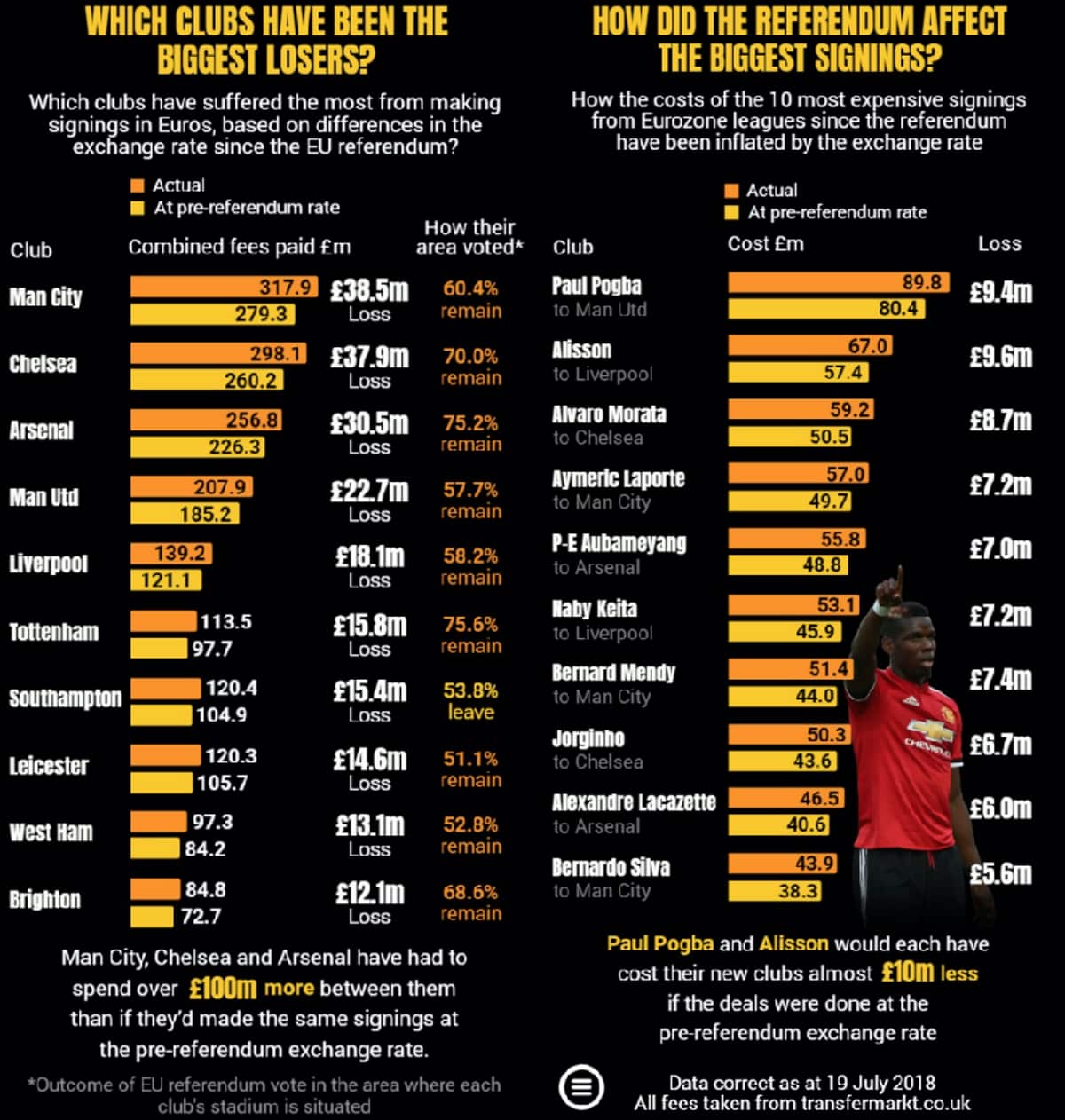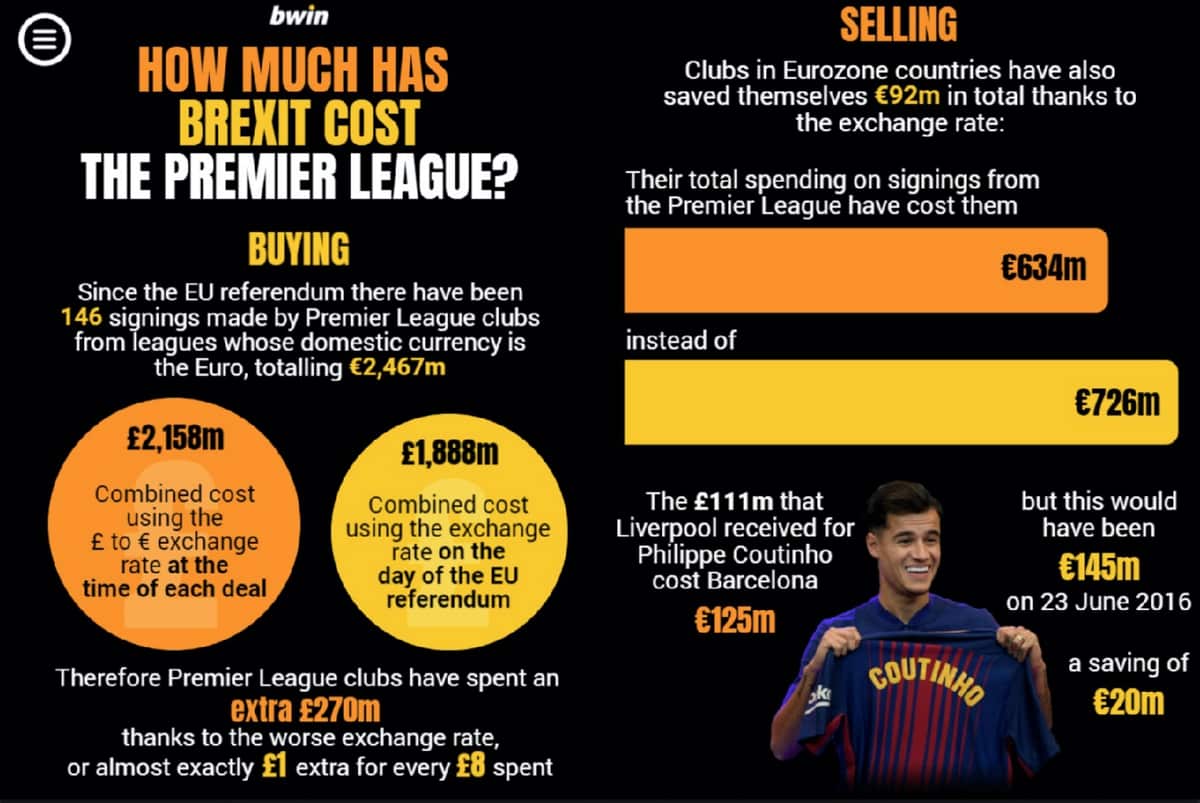Liverpool have lost over £35 million due to changes in the European exchange rate immediately after the United Kingdom’s Brexit referendum in 2016.
The worlds of modern football and politics are often kept separate, with the consuming nature of the sport adopting its own sphere as revenue increases.
But the UK’s proposed withdrawal from the European Union is impossible to ignore, with clubs in the Premier League regularly conducting business with their continental counterparts.
Liverpool have signed Alisson, Fabinho and Naby Keita from European clubs already this summer, as Jurgen Klopp builds a squad prepared to challenge for the title.
The deal to bring Alisson to Merseyside broke the world-record fee for a goalkeeper, but the Reds could have paid Roma considerably less if the transfer came prior to the referendum.
According to research from bwin, Liverpool could have signed the Brazilian for £9.6 million less if the exchange rate had not been affected by Brexit.
Keita, who arrived a year after his move was agreed with RB Leipzig, cost an additional £7.2 million due to the UK’s plan to depart the EU:

These are among the Premier League‘s 10 biggest signings from sides in Europe since the referendum, with none costing their club a bigger differential than Alisson did.
Paul Pogba’s return to Man United comes closest, with the Reds’ rivals forced to pay an extra £9.4 million due to Brexit.
This is not the only way in which the club’s finances have been affected by the vote, with Barcelona saving an incredible £17.81 million with their deal to sign Philippe Coutinho in January.
Combined with the losses made with their summer signings (£18.1 mllion), Brexit has cost Liverpool £35.91 million so far:

Only four sides in the Premier League—United, Arsenal, Chelsea and Man City—have been affected more by the referendum.
Southampton are the only club from the 10 biggest losers to be located in a predominantly ‘leave’ area, with Liverpool’s vote favouring ‘remain’ at 58.2 percent.
As the UK begins to come to terms with the stark reality of Brexit before a deal has even been successfully negotiated, this serves as a reminder of the impact of leaving the EU.

In a recent letter to the Government’s sports minister Tracey Crouch from the House of Lords EU Home Affairs Committee, Lord Jay expressed concerns over the influence of Brexit on UK sport:
“The sports industry in the UK is a huge market. Many of our leagues and teams are internationally renowned brands and make a significant contribution both to the UK’s reputation overseas and to the national balance sheet.
“However the impact of Brexit on sport is an area that has often been overlooked in the melee of other issues raised since the UK decided to leave the EU.
“The evidence we received suggests that for many sports, the impact of Brexit could be extremely significant.
“Ending free movement from the EU could present both challenges and opportunities, but it is clear that we need a proper analysis and a plan for how it is managed.
“We have written to the Minister today to ask her to explain how the Government will support the sports sector when free movement ends, and how it will ensure that sport in the UK does not suffer. We look forward to receiving her response.”
This highlights issues beyond the fees paid by clubs to those within Europe, potentially including their ability to sign players from outside of England due to work permit regulations.


















Fan Comments